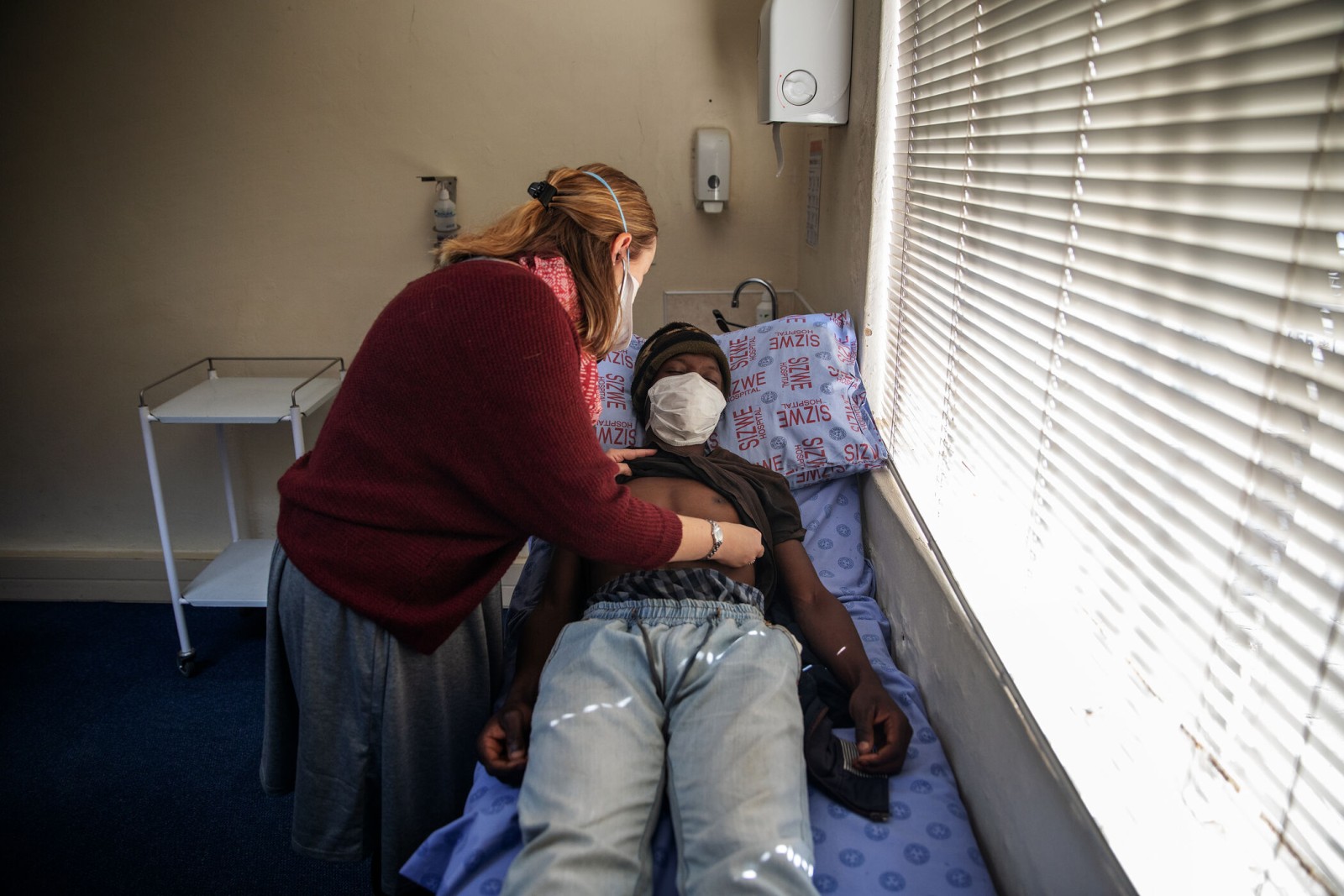Viatris leads in strategies to expand access to TB treatment (pretomanid)
Date
18 November 2021

Viatris
Expanding access to on-patent antibacterial medicines
Viatris uses a variety of strategies to improve the affordability of its anti-TB medicines among underserved populations in countries in scope, and expand access.
102 low-and middle-income countries (“access countries”)
According to WHO, tuberculosis (TB) deaths increased in 2020 for the first time in more than a decade, rising to 1.5 million. The situation is expected to worsen in 2021. Currently, 4,100 people die from TB daily. Between 2018 and 2020 across all adult age groups, only half of those with TB were treated, and just 41% percent of children.
More broadly, people need appropriate access to new and on-patent antibacterial medicines. Lack of availability and/or supply may lead patients to take medicines that do not meet medical need or quality standards, increasing the risk of AMR. In resource-limited countries with high burdens of diseases such as TB, challenges around appropriate access to products remain significantly higher. To expand access, companies can plan and implement a range of strategies to address product registration, accessibility, affordability and supply chains.
What does best practice look like?
Viatris has expanded access to its TB medicines. The company, formed in 2020 from the merger of Mylan and Upjohn, combines a variety of strategies to increase access. Pretomanid (Dovprela) is a relatively new medicine, developed by the TB Alliance and first approved by the FDA in 2019. It is part of the BPal (bedaquiline, pretomanid and linezolid) regimen to treat patients with extensively drug-resistant TB (XDR-TB) and treatment-intolerant/non-responsive MDR-TB. Viatris partners with the GDF-Stop TB Partnership to provide pretomanid at a defined global access price to 150 countries and territories, including all 102 low- and middle-income countries in scope of the Benchmark. A six-month course of treatment costs USD 364 (USD 2 per tablet). Viatris also distributes a generic version of delamanid (Deltyba™, produced by Viatris under licence from Otsuka) to treat MDR-TB.
Why does Viatris stand out?
Viatris stands out in its proactive approach to reach more people with its TB medicines in more countries, including those with the highest TB burdens. By using and combining a range of strategies, Viatris shows willingness and commitment to provide access to its TB medicines. The company’s clear, well-described and detailed access strategies – stating patient and geographic reach, considering ability to pay, and indicating price level – meet the criteria for gold standard. The company also makes commitments for future access.
As well as its partnership with GDF-Stop TB, Viatris partners with other stakeholders including the KNCV in Ukraine, where the BPal regimen was introduced in 2020. Additional programmes are planned in Tajikistan, Myanmar, Vietnam, the Philippines and Indonesia. Another strategy is donations: the company provided 400 cumulative treatment courses of pretomanid, shared between the Indian National Tuberculosis Elimination Program and the South African Conditional Access Program. To ease local healthcare budget constraints, it also agreed to donate 50 courses each to Uzbekistan and Kyrgyzstan for research programmes.
A third initiative is a named patient access programme. Such programmes are not sustainable in the long-term but do take account of affordability to help ensure fast access to new medicines in low- and middle-income countries, acting as a shortcut to innovative and needed medicines. Viatris undertakes to offer pretomanid to up to 40 eligible patients per year in every country where it is not registered or available for free (or on par with GDF access pricing). Low- and lower-middle-income countries will be offered a price on par with GDF’s and Viatris will expand the programme if demand increases. Otsuka has a voluntary licensing agreement with Viatris to accelerate access to delamanid in high TB-burden countries. These two companies have entered into a technology transfer agreement allowing Viatris to produce a low-cost generic version of delamanid in India. The delamanid produced by Viatris does not currently meet quality assurance requirements as it is not approved by a Stringent Regulatory Authority or the WHO Prequalification Programme.
Next steps
Companies should consider the full range of access strategies from the toolkit to determine what is most appropriate, such as voluntary licensing, partnering with external stakeholders, patient assistance programmes, and equitable pricing policies. Companies should also take affordability into account, ensuring that their medicines and vaccines are affordable to the most people, including in the poorest countries.